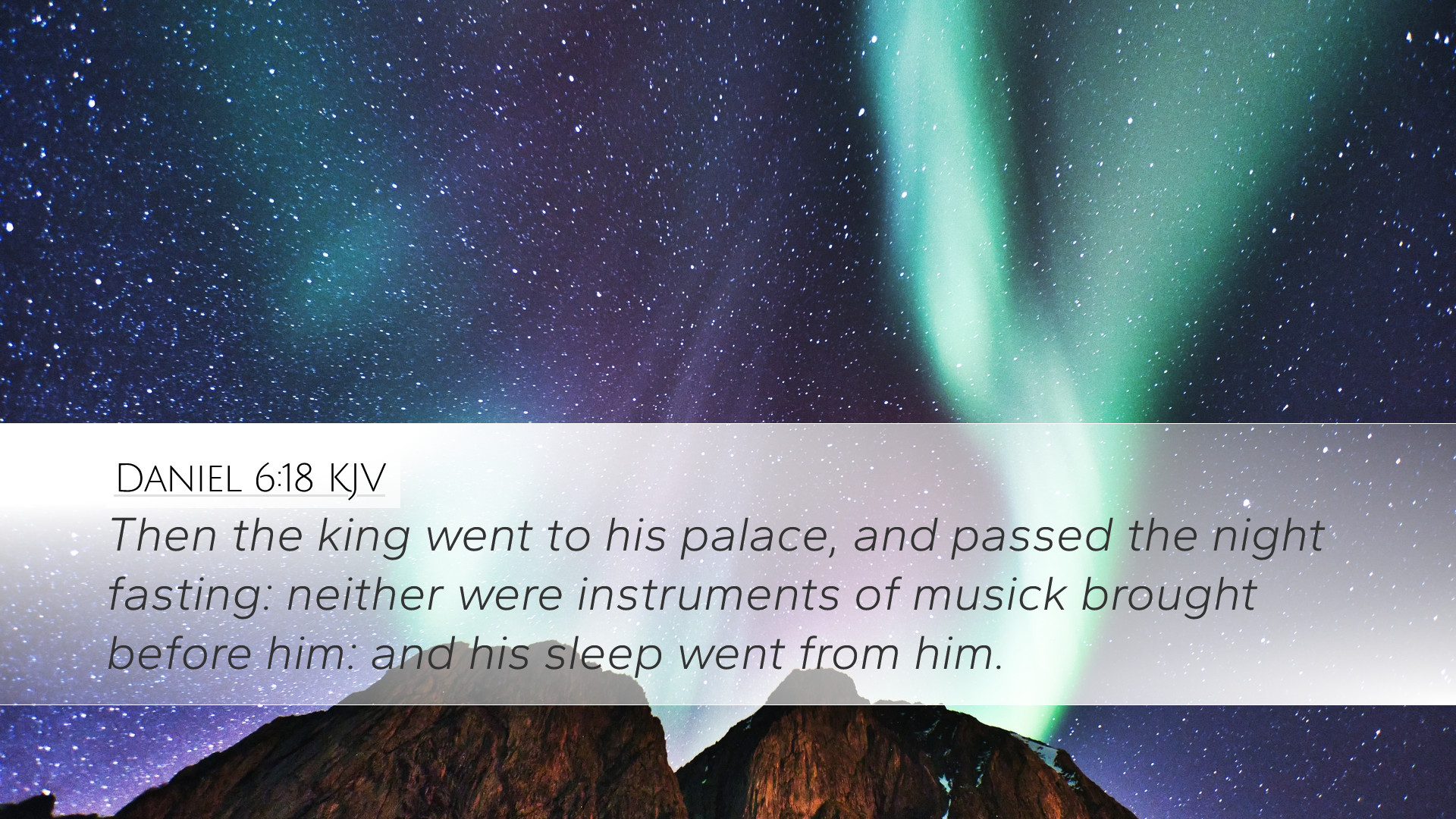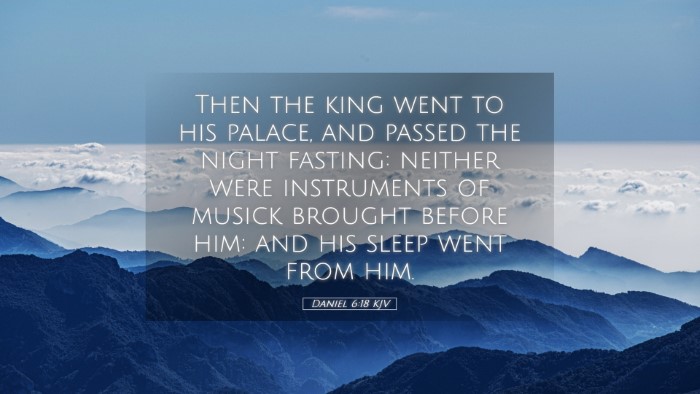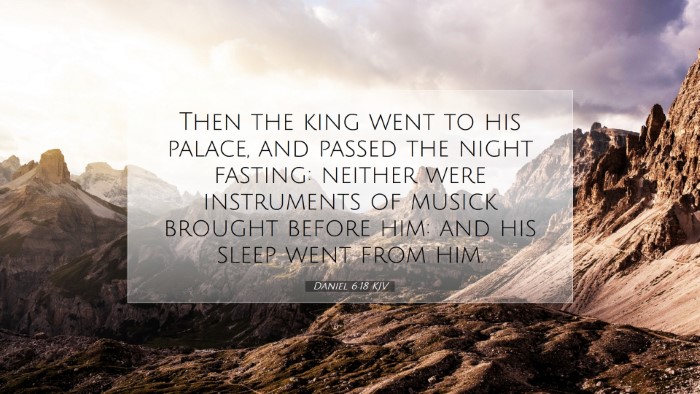Commentary on Daniel 6:18
Text of Daniel 6:18 (ESV): "Then the king went to his palace and spent the night fasting; no diversions were brought to him, and sleep fled from him."
Overview of the Context
The narrative of Daniel 6 situates itself within the historical setting of the Babylonian exile. In this chapter, we observe a critical moment in Daniel's life when he faces the lion’s den, a situation arising from jealousy and political intrigue among the satraps and governors. The decree established by King Darius plays a significant role in the unfolding drama of faith and providence.
The King's Distress
The verse highlights King Darius's reaction to the unfolding events regarding Daniel’s imprisonment. The king’s fast from diversions indicates his deep concern for Daniel. Here, we explore several strands of insight into the king's psyche as perceived by prominent commentators:
-
Matthew Henry:
Matthew Henry emphasizes the king's troubled heart, suggesting that his noble yet misguided actions to establish a decree led him into a dilemma. The king's fasting reflects not just physical abstention but a spiritual turmoil for having been ensnared by his own edict against Daniel, whom he valued greatly.
-
Albert Barnes:
Barnes points out that the king’s sleeplessness is indicative of his inner turmoil, highlighting the moral conflict and regret felt after realizing the implications of the trap he had fallen into. This act of fasting symbolizes not only his worry for Daniel but also an acknowledgment of divine power that supersedes human authority.
-
Adam Clarke:
Clarke notes that the absence of diversions illustrates the king’s sincere commitment to his fear for Daniel's fate. His consciousness of impending doom for Daniel suggests that even in the highest echelons of power, the concern for justice can lead to personal anguish, reflecting the tension between governance and morality.
Theological Implications
This verse evokes a myriad of theological reflections, particularly pertaining to God’s sovereignty and human agency. The following insights emerge from the combined wisdom of esteemed commentators:
-
Divine Sovereignty:
The plight of Daniel underlines God’s overarching providence. As the king wrestles with sleeplessness and fasting, it becomes evident that God's purpose is at work to vindicate His faithful servant. This tension reflects the struggle between human decisions and divine intervention.
-
The Role of Prayer and Fasting:
The act of fasting can be seen as a profound prayer. It places the king in a position of humility and recognition of a higher power. This moment challenges the reader to understand the importance of seeking God earnestly, especially in times of crisis, and indicates that God can act even through those who are not part of His covenant community.
-
Moral Lessons:
The king's behavior serves as a mirror to believers, questioning our responsiveness to injustices inflicted upon the faithful. It calls into question the conscience of leaders who must navigate decisions that affect the innocent. How one governs may indeed reflect one's values, highlighting the importance of integrity in leadership.
Reflection on Human Emotion and Divine Providence
This verse presents a powerful intersection of human emotion and divine providence, suggesting several areas for deeper reflection:
-
The Anxiety of Authority:
The tension of the king’s authority juxtaposed against his personal distress reminds readers that leadership can often lead to profound moral dilemmas, invoking empathy for those in power. Darius’s anxiety serves as a poignant reminder that even in authority, humanness prevails.
-
Hope Amidst Despair:
The image of the king fasting before Daniel is a complex interplay of despair and hope. For those who find themselves in despair, especially in adversities relating to their faith, this verse encourages believers to uphold faith during trials, trusting in God’s faithfulness for deliverance.
-
Prayer as a Divine Connection:
The king’s fast, although likely not a prayer in the traditional understanding, signifies a yearning for divine intervention. It inspires believers to examine their own practices of prayer and spiritual connection, emphasizing that earnestness in seeking God can transcend circumstances.
Conclusion
Daniel 6:18 serves as a critical reminder of the weight of leadership, the depth of human emotion, and the unshakeable sovereignty of God. The insights drawn from public domain commentaries allow readers to glean a holistic understanding of the text, recognizing the serious implications of human decisions woven into God's greater narrative. Pastors, students, theologians, and scholars are called to reflect on the significance of this verse, considering both its historical context and its application to contemporary faith challenges.


